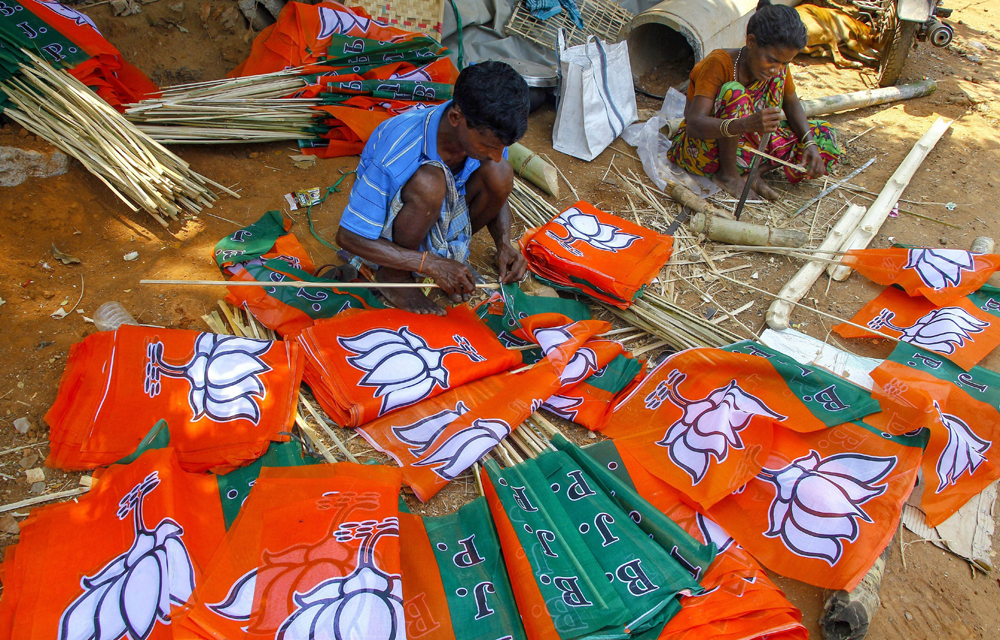Sir — The Narendra Modi-led government at the Centre is destroying every pillar of democracy. Now it seems to be trying to erode the people’s faith in the judiciary (“Vanished”, March 8). At first, it created a controversy by submitting a dubiously worded confidential affidavit to the Supreme Court, which led the court to believe that the pricing of the Rafale aircraft had been shared with the comptroller and auditor general of India, and already reviewed by the public accounts committee. But the second part of the statement proved to be false.
Similarly, during the recent hearing that sought a review of the December judgment on the Rafale deal, the attorney general, K.K. Venugopal, first urged the court to not rely on the reports published by the media on Rafale deal as they were “stolen” from the government. But after the bench declared that illegally acquired documents were admissible as evidence, and both the common people and the Opposition decried the government for being unable to keep the documents safe, the Centre changed its argument. Venugopal clarified that the documents were not missing, but the petitioners used their photocopies without permission.
The big question is whether the Centre should be allowed to keep changing its positions at the drop of a hat. Further, if the government is headed by people who lie without remorse, how one can expect the people working under it to speak the truth?
Bidyut Kumar Chatterjee,
Faridabad
Sir — The Centre’s threat of invoking the Official Secrets Act betrays the fact that the Bharatiya Janata Party is terrified of the Rafale documents being used as evidence of its wrongdoing. India has a history of scandals and political plots being uncovered through investigative journalism, and that tradition is irreplaceable for the health of a democracy.
Priyanka Bose,
Calcutta
Tread carefully
Sir — Restructuring the Madhyamik board syllabus is likely to be futile because the diagnosis of the problem itself is wrong (“Madhyamik course rehaul to woo pupils”, March 5). The present syllabus and the question pattern in the West Bengal board are not very different from those of the Central Board of Secondary Education and the Indian Certificate of Secondary Education. The problem lies with the standard of the content of the books prescribed and the quality of teaching in most government schools. Although the simple narration of texts in all subjects can be helpful for students from the underprivileged sections of society, the needs of other students, too, should be kept in mind.
The other problem is that the Urdu- or Hindi-medium books seem to be translated directly from original Bengali-medium books or their English translations. The authorities should entrust the task to a board of expert translators. Authors should also be employed to write new content in the language concerned, following guidelines given by the board.
It is heartening that the state government and the education department are intent upon improving the quality of education imparted in schools. They provide projectors and regular training for many teachers. Follow-up inspections are also carried out. The exodus of students from state board schools to the CBSE board schools might also arise from the misconception that the state board syllabus does not help in the all-India competitive exams as much as the CBSE syllabus does.
Jawed Nehal Hashami,
Calcutta
Sir — It is a challenging task for the West Bengal board to frame a more contemporary syllabus. Students in the state-run schools range from those coming from well-off families with educated parents to first-generation learners with parents who have had little opportunity for, or interest in, academics. The syllabus has to accommodate them all.
Although an overhaul of the courses according to the patterns of the ICSE and CBSE could be helpful, the authorities must keep in mind this wide cross section of students while taking any step.
Swati Goswami Bose,
Calcutta
Sky is the limit
Sir — The news that six vultures bred in Bengal are ready to be released into the wild later this year is heartening (“A ‘first’ in vulture conservation”, March 11). In January, it was reported that the number of river terrapins had increased in the Sunderbans owing to conservation efforts. Such projects require a lot of time and money. Therefore, the teams working in this field must not only be lauded but also given substantial financial aid. That is the least that we, as human beings, can do in order to redeem our race that is, directly or indirectly, responsible for threatening the existence of other creatures.
Shreya Malakar,
Calcutta











